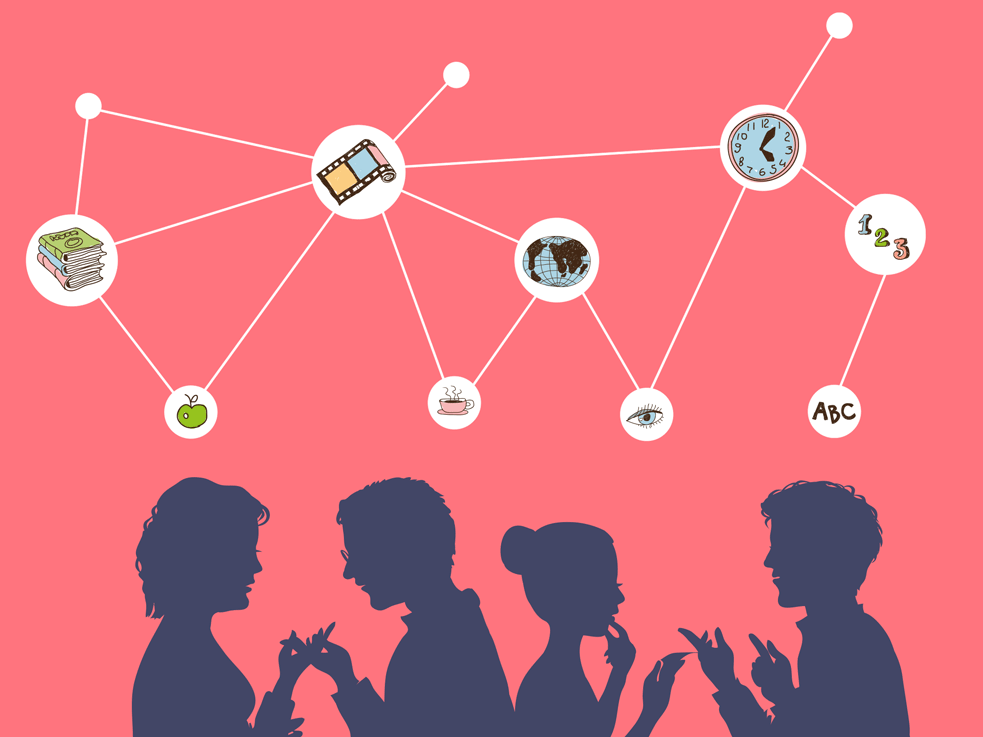 By Krystian Aparta
By Krystian Aparta
They say that children learn languages the best. But that doesn’t mean that adults should give up. We asked some of the polyglots in TED’s Open Translation Project to share their secrets to mastering a foreign language. Their best strategies distill into seven basic principles:
- Get real. Decide on a simple, attainable goal to start with so that you don’t feel overwhelmed. German translator Judith Matz suggests: “Pick up 50 words of a language and start using them on people — and then slowly start picking up grammar.”
. - Make language-learning a lifestyle change. Elisabeth Buffard, who in her 27 years of teaching English has always seen consistency as what separates the most successful students from the rest. Find a language habit that you can follow even when you’re tired, sick or madly in love.
. - Play house with the language. The more you invite a foreign language into your daily life, the more your brain will consider it something useful and worth caring about. “Use every opportunity to get exposed to the new language,” says Russian translator Olga Dmitrochenkova. Label every object in your house in this language, read kids’ books written in it, watch subtitled TED and TEDx talks, or live-narrate parts of your day to an imaginary foreign friend.
. - Let technology help you out. Dmitrochenkova has a great idea: “A funny thing like resetting the language on your phone can help you learn new words right away,” she says. Ditto for changing the language on your browser. Or you can seek out more structured learning opportunities online. Dutch translator Els De Keyser recommends Duolinguo for its gamified approach to grammar, and Anki for memorizing vocabulary with its “intelligent” flashcards.
. - Think about language-learning as a gateway to new experiences. To Spanish translator Sebastián Betti, learning a language has always been about focusing on the experiences that the new language would open up, from “visiting theme parks, attending air shows, enjoying cowboy poetry and folk-rock festivals, to learning about photo-essay techniques.” In other words, he thinks of fun things that he wanted to do anyway, and makes them into a language-learning opportunity. Many of our translators shared this advice. Italian and French translator Anna Minoli learned English by watching undubbed versions of her favorite movies, while Croatian translator Ivan Stamenković suddenly realized he could speak English in fifth grade, after years of watching the Cartoon Network without subtitles. So the next time you need a vegan carrot cake recipe, find one in the language you’re trying to learn.
. - Make new friends. Interacting in the new language is key — it will teach you to intuitively express your thoughts, instead of mentally translating each sentence before you say it. Find native speakers near you. Or search for foreign penpals or set up a language tandem online, where two volunteers help one another practice their respective languages.
. - Do not worry about making mistakes. One of the most common barriers to conversing in a new language is the fear of making mistakes. But native speakers are like doting parents: any attempt from you to communicate in their language is objective proof that you are a gifted genius. They’ll appreciate your effort and even help you. Nervous about holding a conversation with a peer? Try testing your language skills with someone a little younger. “I was stoked when I was chatting with an Italian toddler and realized we had the same level of Italian,” recalls German translator Judith Matz. And be patient. The more you speak, the closer you’ll get to the elusive ideal of “native-like fluency.” And to talking to people your own age.
Comments (137)